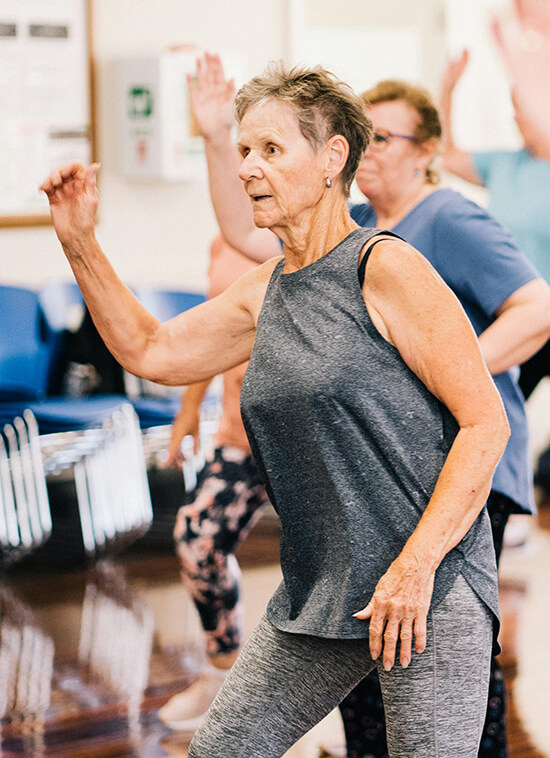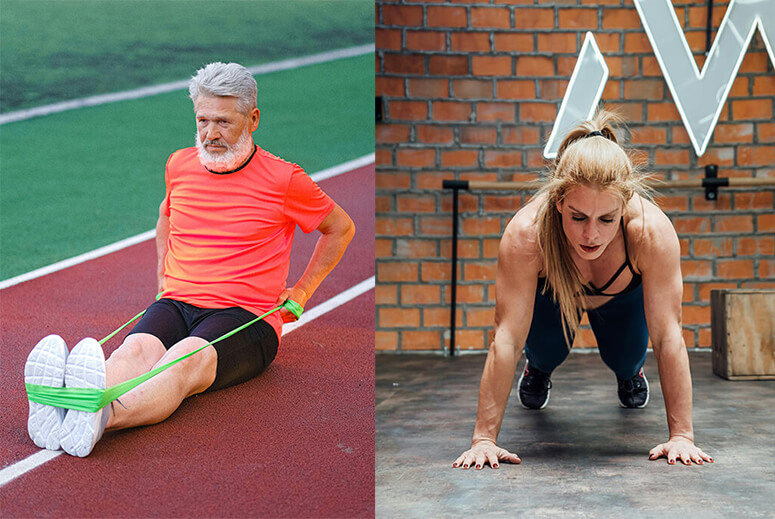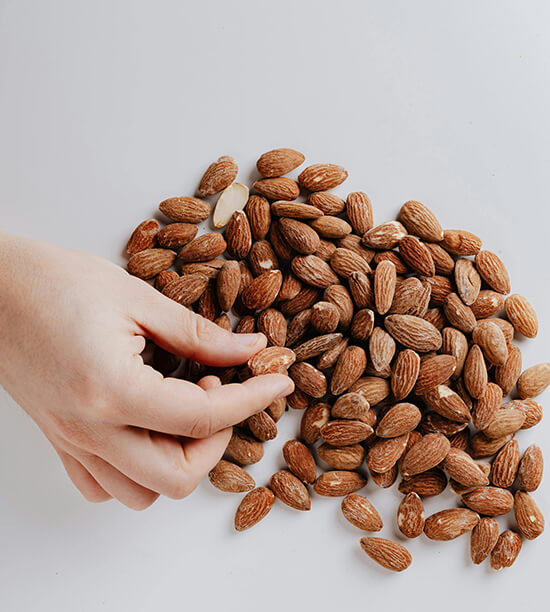Five steps you can take towards longevity
Bidding farewell to a year that brought us more TikTok wellness advice, an abundance of processed fake meats, and news on weight-loss injectables, the pursuit of a fulfilling and enduring life has become more desirable than ever.
Longevity is not just about adding years to our life, but ensuring those years are vibrant, active, and deeply satisfying. Here are five practical healthy lifestyle habits to inspire you to continue making healthy choices that promote growth, longevity, and overall well-being.

Walk after your meals. Don’t underestimate the benefits of straight-up walking for overall health. Not only does this improve cardiovascular fitness, but it also strengthens bones and muscles.
Studies show that light exercise, such as going for a five- to 10-minute walk following a meal can aid in digestion and lower blood sugar. Post-meal walks are, therefore, a secret weapon for boosting metabolism and overall weight management.

Regular brisk walking combined with healthy eating is extremely effective for weight loss, when overall energy output exceeds caloric intake. Walking also aids in the reduction of visceral fat, also known as belly or abdominal fat, which is particularly hazardous to one’s health. In fact, recent research published by the Journal of American College of Cardiology found that walking 8,000-10,000 steps per day cuts your risk of dying (all-cause mortality) by more than 50%.
Embrace the power of resistance training. An increasing number of studies like the one published in the National Library of Medicine highlight the importance of resistance training for overall physical health and how keeping and building lean muscle is key to longevity and a functioning metabolism. As we age, our bodies begin to lose muscle mass. This effect not only decreases our strength, it also begins to decrease our bone density, as our muscles are the support structure for our bones. By adding resistance training, and subsequent lean muscle mass, we not only support our bones, but we will also burn more calories at rest since muscle burns more than fat—another key to a strong metabolism. You could implement resistance training into their daily routine in a straightforward manner by performing push-ups, beginning with wall push-ups, and progressing to the floor as your strength increases.

It has been demonstrated that resistance training and promoting muscle protein synthesis are excellent predictors of longevity. Researchers have found that it can combat common age-related physiological changes like strength and declining muscle mass, increase bone density, as well the as reduction of body fat and the promotion of cognitive function.
Eat your protein. One of the biggest reasons to eat protein is that muscle mass decreases approximately three to eight percent per decade after the age of 30 and this rate of decline is even higher after the age of 60. It’s true that you need adequate protein in order to build lean muscle. But eating more protein alone won’t cause you to develop more muscle; resistance exercise is needed to target those muscles. The process of muscle repair and growth (also known as muscle protein synthesis) occurs as your body recovers from a bout of exercise, and taking in about 20-30 grams of high-quality protein after a strength-training workout and at each meal is one of the best ways to promote muscle growth. Having a good lean body or muscle mass, more specifically, helps protect against bones becoming weaker or thinner. The body uses amino acids, which are the building blocks of protein, for muscle repair and recovery. A high-quality protein is preferential for the body for this process. Some great protein sources are meat, chicken, fish, eggs, soy, whey, and casein.

Take care of your gut. Despite its vital importance, gut health remains one of the least discussed aspects of body maintenance The term “gut health” pertains to the presence of a well-functioning microbiome in the small and large intestines, as well as the absence of excessive digestive symptoms. As we progress through life, there are a lot of things that can break down our microbiome. Some major factors include stress, eating sugar, fried foods, processed foods, and taking antibotics. It's important to rebuild our healthy gut, as it helps us by boosting our metabolism, keeping a healthy digestion, and aids in immune health since 70-80% of our immune cells are present in the gut. Taking a probiotic daily, eating a variety of high-fiber fruits and vegetables, fermented food, or yogurt are some of the ways that we can rebuild and repair our gut health. For immune health benefit, check the probiotic product strain and substantiation for this effect.
Seek support. Another key aspect of longevity is seeking support. Joining a community or seeking support on your journey towards longevity will inspire you to unleash your creativity and meet your goals. For one thing, personal connections foster motivation, making it more likely for you to adhere to healthy lifestyle habits and deliver results. A supportive environment also provides the opportunity to share experiences, access to diverse perspectives, and can help you discover what works best for your unique goals. Longevity isn’t just about individual efforts, it thrives on connection, communal encouragement, and creates a foundation for a healthier and more fulfilling life.
One can derive significant advantages from embracing a holistic approach to well-being that prioritizes physical activity, good nutrition, and meaningful connections with others. I encourage you to start a journey towards enduring well-being by incorporating these steps into your daily routine.


